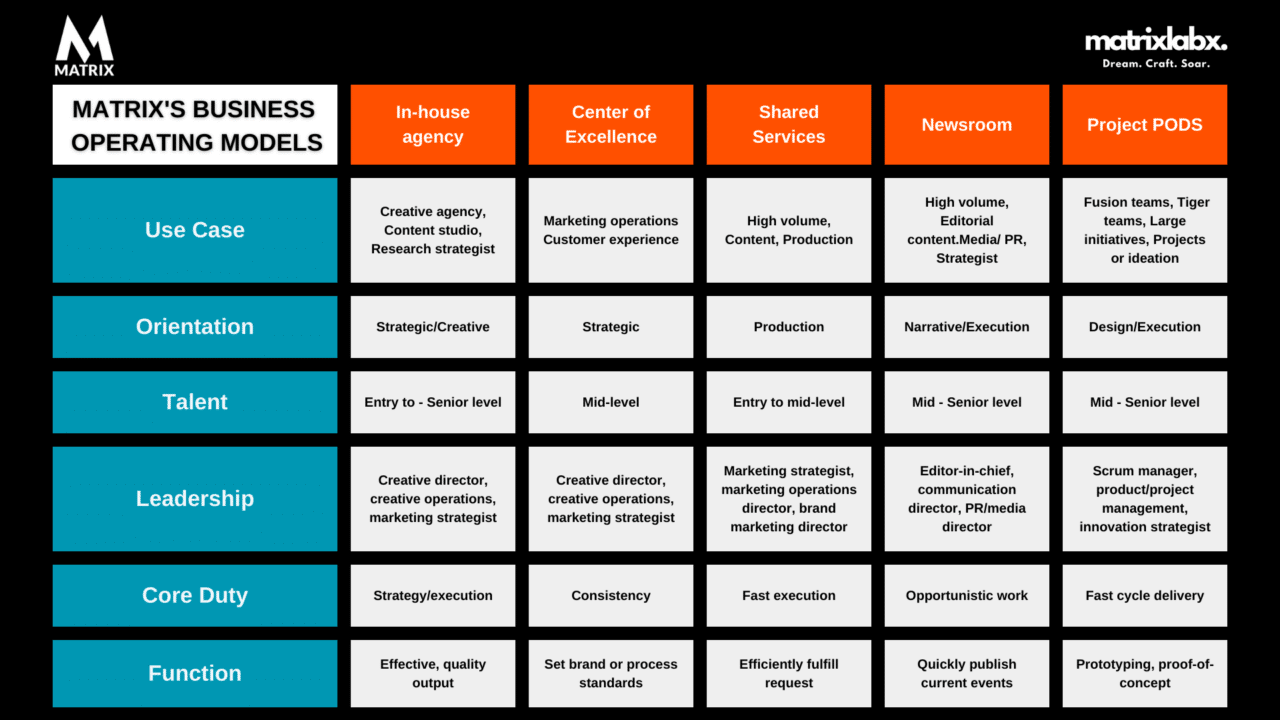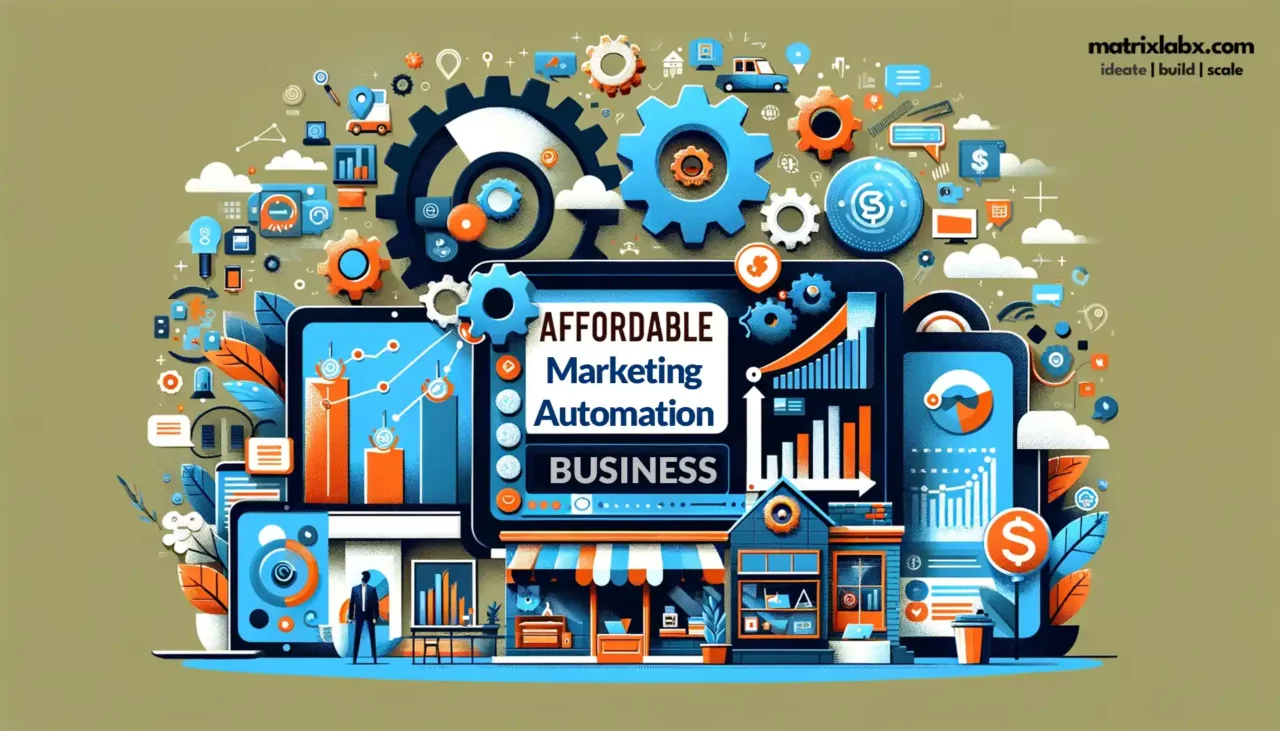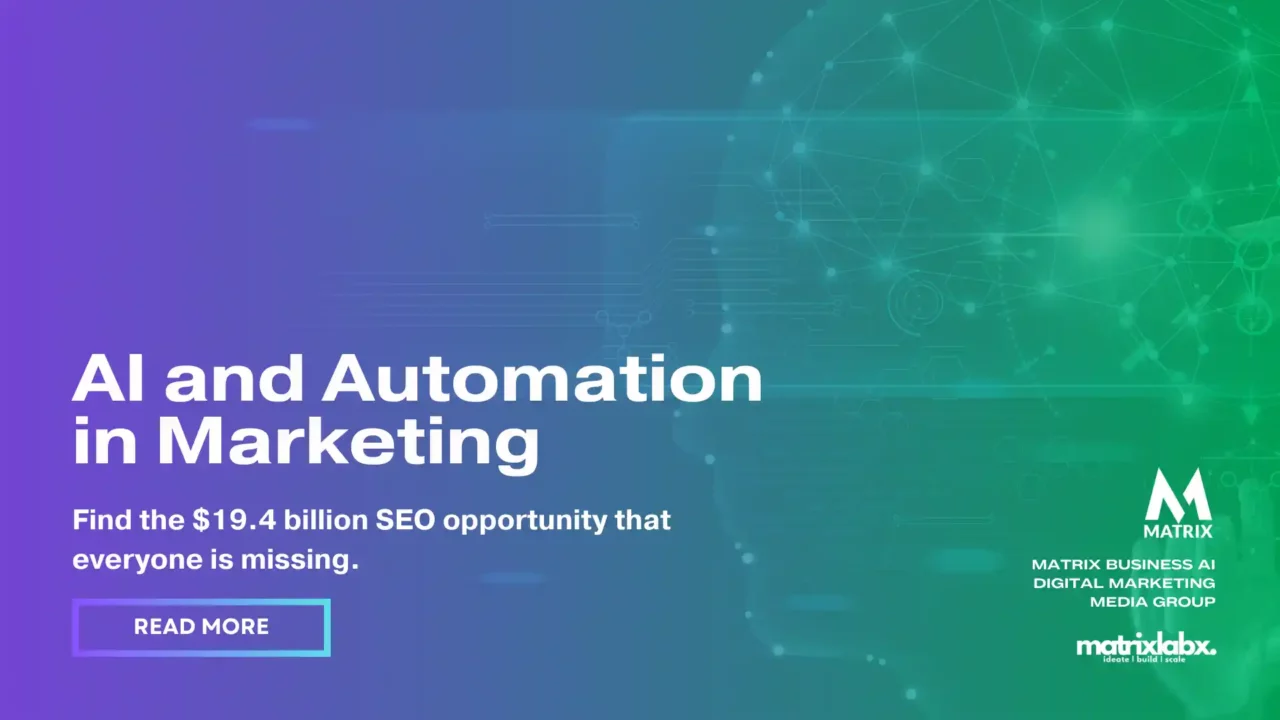AI Automation Marketing: The Rise of AI
AI and Automation in Marketing: The Rise of AI in Content Creation, Ad Optimization, and Customer Service: A Revolution Brewing.
No one sees the $19.4 billion SEO opportunity.
Title: The Turning Point: A Marketing Manager’s Journey from Resistance to AI Automation
Sarah Matthews had built a reputation as a seasoned marketing content manager in the tech industry. She led campaigns that consistently brought results the old-fashioned way for nearly a decade—through human creativity, strategy, and hard work. While others in her field talked about AI automation, she remained skeptical.
“AI can’t understand the nuances of storytelling,” she often said. “You need a human touch to engage audiences authentically.”
Her team respected her for her experience, but they had begun to notice a shift in the marketing landscape. Competitors were launching content at a speed they couldn’t keep up with. Even more frustratingly, this content was relevant, high-quality, and hyper-targeted to customers’ interests.
But Sarah resisted. She saw AI as a fad, another tech buzzword that would eventually fade. So, she and her team continued to brainstorm content ideas, write long-form blog posts, and manually research keywords for SEO. They believed in quality over quantity and thought AI could never replicate that.
Then came the quarterly review.
The company’s CEO, Mark, called for a meeting with the marketing team. As Sarah presented their metrics—consistent engagement but slow growth—Mark remained polite, but his expression was unreadable.
“Thanks for the update, Sarah,” he said after she finished. “But I think it’s time we rethink our content strategy. Competitors are outpacing us, and we need to scale—fast.”
That stung.
“Mark, we’re putting out high-quality content,” Sarah replied, a tinge of defensiveness in her voice.
“I don’t doubt that,” Mark responded. “But I’m hearing about AIContentPad. Competitors are using it to automate 80% of their content, and the engagement is off the charts. Let’s give it a try.”
Sarah’s face flushed. AIContentPad? In passing, she had heard of it—an AI-driven platform that claimed to automate content creation, optimize for SEO, and even generate personalized customer journeys. She had dismissed it as another tool that would churn out mediocre work, but now, the pressure was on.
That night, unable to shake the CEO’s words, she sat in her living room, laptop open, and decided to give AIContentPad a test run. If it failed, she would have the evidence to convince the CEO to stick with the human approach.
She uploaded a project brief: a product launch for the company’s latest SaaS solution. AIContentPad analyzed target keywords, audience segments, and competitive content trends with a few clicks. It generated a suite of blog posts, social media copy, and even video scripts in minutes. But it got even better with AI engineering, tuning, and grounding in the second phase and, in the final phase, corporate governance.
Sarah’s eyes widened as she scrolled through the results. The tone was sharp, the ideas creative, and—perhaps most surprising—the content was genuinely engaging. The AI had even tailored the messaging to different audience personas, which typically took her team days to perfect.
Skeptical, she ran the content through her usual checks: plagiarism scans, SEO analysis, and relevance assessments. Everything came back perfectly.
Intrigued, Sarah assigned her team to use AIContentPad for several more projects. The results were immediate. The AI’s automation allowed the team to publish more content faster without compromising quality. Metrics soared. Engagement tripled within weeks. Traffic surged. The marketing team produced twice as much content while spending half the time, and the data-driven insights from AIContentPad made their campaigns laser-focused.
At the next quarterly review, Sarah stood before Mark with a different story.
“I was wrong,” she said, smiling as she clicked through the slides of skyrocketing performance metrics. “AIContentPad has changed how we approach content creation. We’re producing more, engaging more, and getting better results.”
Mark grinned. “I’m glad you gave it a chance.”
Sarah had to admit it: the future of marketing wasn’t just human—it was the perfect blend of human creativity and AI efficiency. And now, she was at the forefront of that change.
From that day on, Sarah championed AI automation, no longer resisting the future but embracing it.
While everyone focuses on Google, Bing, TikTok, and Instagram SEO, they need to include the biggest growth opportunity in search: voice.
According to Statista, $19.4 billion was spent on voice search and voice commerce last year, a growth of over 300% in just the last two years.
Think about it… voice is powering everything from homes to cars to mobile devices.
This revolution is happening with or without you.
As a professional sales and marketer, I will admit it has always been challenging to create, launch, and scale a business, a product, a service, or a bundle. And it’s all due to artificial intelligence.
Launching and scaling ventures has always been challenging, but the rise of AI adds a new layer to the game. Its automation potential offers incredible opportunities but demands strategic navigation to avoid technical roadblocks and ethical dilemmas.
AI is rapidly transforming how we engage with the digital world, particularly in content creation, ad optimization, and customer service.
The rise of these AI-powered tools and their potential impact

Content Creation:
AI writing assistants:
Tools like Jasper, AIContentPad, Grammarly, and Copy.ai help generate content ideas, outlines, and even full-fledged articles, product descriptions, and social media posts.
These tools can free up creators’ time for strategic planning and editing, but it’s crucial to maintain a human touch for authenticity and quality.
Content optimization platforms:
Tools like MarketMuse and Yoast SEO use AI to analyze content for readability, SEO relevance, and target audience engagement. This data-driven approach helps ensure content reaches the right people and performs well in search engines.
Personalized content recommendations:
AI algorithms can predict user preferences and recommend relevant content accordingly. This personalization enhances user experience and keeps them engaged with your brand.
Ad Optimization:
Dynamic bidding and budget allocation:
AI platforms like Acquisio analyze real-time ad campaign data and automatically adjust bids and budgets for optimal performance. This saves time and resources while maximizing ROI.
Creative optimization:
AI can analyze A/B tests of ad formats, headlines, and visuals to identify the most effective combinations. This data-driven approach helps tailor ads for specific audiences and platforms. AI Product Management: Why Software Product Managers Need to Understand AI and Machine Learning
Fraud detection and prevention:
AI algorithms can detect and prevent ad fraud by identifying suspicious clicks and bot activity. This protects ad budgets and ensures accurate campaign performance data.
Customer Service:
Conversational AI chatbots:
These AI-powered chatbots can handle routine customer inquiries, answer questions, and resolve basic issues 24/7. This reduces wait times, improves customer satisfaction, and frees up human agents for complex cases.
Sentiment analysis:
AI can analyze customer interactions to understand their emotions and sentiments. This helps businesses proactively identify and address potential issues, improving customer relationships.
Personalized recommendations:
AI-powered customer service platforms can recommend relevant products, services, or support articles based on individual customer needs and history. This personalization enhances the customer experience and promotes positive interactions.
Challenges and Considerations:
Ethical concerns:
Biases in AI algorithms can lead to discriminatory practices. Therefore, it’s crucial to ensure the ethical development and use of AI tools, particularly in customer service interactions.
Transparency and trust:
Customers need to understand how AI is used and be confident that their data is secure. Transparency and clear communication are key to building trust in AI-powered services.
Human-AI collaboration:
AI should not replace humans but rather collaborate with them to enhance decision-making and optimize processes. Human oversight and control remain essential for effective AI implementation.
Overall, the rise of AI is transforming how we create content, optimize ads, and interact with customers. While challenges exist, the potential benefits for efficiency, personalization, and data-driven decision-making are immense. As AI technology continues to evolve, responsible and thoughtful implementation will be critical for reaping the full potential of this revolutionary force. AI Marketing Plan for Manufacturing Businesses
Would you like to explore anything specific about the rise of AI in these areas further? I’m happy to dive deeper into any particular aspect that interests you.
Unleashing the Power of AI in Marketing: A Revolution Awaits

The Dawn of a New Era in Marketing
Welcome to the future of marketing, where Artificial Intelligence (AI) and automation are not just buzzwords but powerful tools reshaping the landscape. In an era where every click, like, and scroll is data waiting to be deciphered, AI has emerged as the key to unlocking hidden insights and automating complex processes.
This transformation is not just about efficiency; it’s about revolutionizing how we connect with audiences, understand consumer behavior, and create more impactful marketing strategies.
AI: The Game Changer in Customer Engagement
At the heart of this revolution is the ability to engage with customers like never before. AI-powered solutions enable marketers to craft personalized experiences at an unprecedented scale, predict customer preferences, and deliver content that resonates deeply.
This level of personalization is not just a competitive advantage; it’s rapidly becoming necessary in a world where consumers expect brands to understand their unique needs and preferences.
Automation: The Silent Force Multiplier
Parallel to AI’s rise is the surge in automation technologies.
These tools are the unsung heroes in the marketing world. They tirelessly work behind the scenes to streamline workflows, optimize campaign performance, and free up valuable time for creative and strategic endeavors. Automation ensures consistency and accuracy in repetitive tasks, allowing marketing teams to focus on innovation and creativity.
Integrating AI and Automation: A Strategy for Success
The integration of AI and automation is where the real magic happens. This synergy enhances every aspect of marketing – from content creation to campaign analysis, social media management, and customer service. I
t’s a strategy that delivers better results and provides a deeper understanding of the market dynamics and consumer behavior, leading to more informed decision-making and a significant improvement in return on investment. How to Create a Revenue Strategy in 7 Easy Steps
Preparing for the AI and Automation Revolution
As social media managers stand at the forefront of this revolution, the question remains: how ready are you to harness the power of AI and automation in your marketing strategies?
This article will guide you through the essentials of integrating these technologies, offering insights, strategies, and real-world examples to ensure you’re not just keeping up with the trends but leading them.
In this journey, we will explore the endless possibilities that AI and automation offer to the marketing world, ensuring that you, as a social media manager, are fully equipped to transform your strategies and lead your brand into a new era of digital excellence. Welcome to the revolution.
AI and automation in marketing are gaining significant momentum, presenting some intriguing statistics that reflect their growing impact and potential. Here are some of the lesser-known yet fascinating stats about AI and automation in the marketing industry:
- Market Size and Growth: The global Artificial Intelligence market is expected to reach a staggering $299.64 billion by 2026, showcasing a robust Compound Annual Growth Rate (CAGR) of 35.6% from 2021 to 2026. China’s AI market alone is forecasted to hit $40.4 billion by 2026.
- AI in Business Strategy: Over 80% of executives believe that AI is a crucial element in their business strategy, with 84% stating that AI will enable them to obtain a competitive edge. Remarkably, AI technologies are projected to boost business productivity by 40% by the end of 2035.
- AI in Marketing Industry: The AI marketing industry will reach $30.8 billion in 2023. This growth is driven by the increasing demand for personalized experiences and automated customer segmentation, which AI-driven marketing techniques can provide efficiently.
- Impact on Marketing and Sales: AI significantly affects marketing and sales functions, with an impact range of $1.4 trillion to $2.6 trillion. The number of marketers using AI surged from 29% in 2018 to 84% in 2020, highlighting the rapid adoption of AI in the marketing sector.
- AI Adoption for Cost Reduction: Around 42% of business leaders have implemented AI to reduce general hiring needs, indicating AI’s role in streamlining recruitment and addressing talent shortages.
- Challenges in AI Adoption: Despite its growing popularity, AI adoption faces hurdles such as lack of education and training (70% of respondents), unawareness (46%), and limited resources (46%). These barriers highlight the need for more focused efforts in AI literacy and resource allocation within organizations.
- AI and Customer Experience: AI is revolutionizing customer experience. By 2023, 85% of customer interactions with a company are projected to occur via AI. AI offers companies highly personalized experiences, quick response times, and superior service.
- Future Outlook: The future of marketing with AI integration is promising. AI is expected to influence the evolution of marketing strategies significantly, emphasizing the importance for businesses to adapt and integrate AI technologies to stay competitive.
These statistics underscore the transformative role of AI and automation in the marketing landscape, highlighting their potential to enhance business strategies, customer engagement, operational efficiency, and competitive edge.

AI Toolkit for Technology Companies
We’ve included a complete list of AI tools for technology firms, with over 800 free prompts and an AI Cheat Sheet to help you get started and leverage artificial intelligence faster.
AI Toolkit for Technology Companies
The Double-Edged Sword: Navigating the Challenges of AI and Automation for Social Media Managers
The Complexity of Personalization
AI and automation have opened new doors for hyper-personalization in marketing, allowing for content that resonates more deeply with audiences. However, this sophistication brings a significant challenge for social media managers.
Crafting content that aligns perfectly with the nuanced preferences of a diverse audience can be daunting. Social media managers must now become adept at interpreting AI-driven analytics and translating them into effective, personalized social strategies. This shift demands a deep understanding of AI technology and an unwavering commitment to staying abreast of evolving consumer behaviors and preferences. What are Digital Marketing Services?
The Balancing Act of Human Touch and Automation
Automation in social media marketing promises efficiency and consistency, but it risks eroding the authentic human connection that is the hallmark of successful social media interactions.
Social media managers face the challenge of integrating AI tools in a way that amplifies, rather than replaces, the human element in their communications. This delicate balance requires a strategic approach, where automation handles routine tasks while human creativity and empathy drive engagement and brand storytelling. The key is using AI to enhance human skills rather than making them redundant.
Adapting to a Rapidly Evolving Landscape
AI and automation are not static technologies; they evolve quickly. For social media managers, this means continuous learning and adaptation. It is crucial to stay current with the latest AI advancements and understand how they can impact or enhance social media strategies.
The challenge lies in adapting to new technologies and foreseeing how these changes can reshape the social media landscape. Social media managers must be futurists, constantly predicting and preparing for the next wave of AI-driven consumer engagement and interaction changes.
Navigating Ethical and Privacy Concerns
Ethical and privacy concerns emerge as AI becomes more ingrained in social media marketing. Social media managers must navigate the complex terrain of using consumer data responsibly. They must ensure their AI-driven strategies comply with evolving data privacy laws and ethical standards. This challenge involves understanding the legal aspects and building trust with audiences, ensuring that the use of AI in marketing is transparent and respects consumer privacy.
Embracing the Challenges as Opportunities
While AI and automation present significant challenges for social media managers, these hurdles also offer opportunities for growth and innovation. By embracing these challenges, social media managers can develop more nuanced, effective strategies that leverage the best of AI and human creativity. The future of social media marketing lies in the ability to adapt, learn, and ethically use AI to create deeper, more meaningful connections with audiences.
Navigating the AI and Automation Era: A Guide for Social Media Managers
Who: The New-Age Social Media Managers
In the landscape of AI and automation, social media managers are the new-age navigators. They are the digital architects who blend creativity with technology to craft engaging online narratives. These professionals are not just content creators but data analysts, trend forecasters, and digital strategists. They hold the key to unlocking the potential of AI and automation in marketing, transforming how brands interact with their audiences.
What: The Integration of AI and Automation
AI and automation in marketing encompass a range of tools and technologies designed to analyze consumer behavior, automate routine tasks, and personalize content. For social media managers, this means using AI-driven analytics to understand audience preferences, deploying chatbots for customer service, and leveraging machine learning algorithms for targeted advertising. The aim is to create more impactful, efficient, and personalized marketing campaigns that resonate deeply with the audience.
Where: The Digital Battleground
The implementation of AI and automation by social media managers takes place in the digital realm – a battleground of engagement, trends, and competition. Social media platforms like Facebook, Instagram, Twitter, and LinkedIn are the arenas where these technologies are employed. However, the scope extends beyond these platforms, encompassing email campaigns, digital ads, and web analytics, forming a comprehensive digital marketing strategy. What are CMOs Top Priorities in 2023?
When: The Time is Now
Social media managers must embrace AI and automation now. The digital marketing world is evolving rapidly, with AI and automation technologies becoming more accessible and sophisticated. Delaying the adoption of these technologies could mean missing out on crucial insights and falling behind in an increasingly competitive market. Continuous learning and adaptation to these technologies are essential for staying relevant and effective.
Why: The Imperative of Keeping Up
Integrating AI and automation in marketing is not just a trend but a necessity. For social media managers, understanding and using these technologies is crucial for several reasons. Firstly, it enhances the ability to create content that is more aligned with the audience’s interests and behaviors. Secondly, it improves efficiency by automating routine tasks, allowing managers to focus on more strategic aspects. Finally, it equips them with the tools to stay competitive in a rapidly evolving digital landscape.
Embracing the Future
For social media managers, integrating AI and automation in marketing is not just about keeping up with trends; it’s about future-proofing their strategies. By understanding AI and automation’s who, what, where, when, and why, they can lead their brands into a new digital marketing era marked by efficiency, personalization, and innovation.
This journey requires continuous learning, adaptation, and a forward-thinking mindset to unlock the full potential of AI and automation in creating compelling, engaging, and successful social media campaigns.
Harnessing AI and Automation in Marketing: Three Game-Changing Use Cases
1. Personalized Customer Journeys: From One-Size-Fits-All to Tailor-Made Experiences
Before: Traditional marketing often involved a broad, one-size-fits-all approach, where brands blasted the same message to all their customers, leading to lower engagement and conversion rates, the challenge is creating marketing that resonates personally with each individual in a diverse audience.
After: Enter AI-driven personalization. AI algorithms analyze consumer data, like past purchases, browsing history, and social media activity, to create highly personalized customer journeys. This leads to content, recommendations, and offers tailored to individual preferences.
Benefit: The result? A dramatic increase in engagement and customer loyalty. Personalized experiences make customers feel understood and valued, leading to higher conversion rates and increased sales. Brands using AI for personalization can see a significant ROI as their marketing efforts become more targeted and effective.
2. Efficient Social Media Management: Revolutionizing Engagement and Analysis
Before: Social media managers often juggle multiple platforms, struggling to keep up with the relentless pace of content creation, posting, and engagement. The manual process of analyzing social media metrics is time-consuming and prone to errors, making it challenging to optimize strategies effectively.
After AI and automation change the tools, tools powered by AI can automate content posting, monitor social media trends, and provide real-time analytics. Chatbots can handle basic customer inquiries, freeing time for more complex tasks.
Benefit: The efficiency gains are immense. Social media managers can focus on strategy and creative content creation, leaving the routine tasks to AI. This shift improves the quality of social media presence and provides deeper insights into audience behavior, leading to more informed and successful marketing decisions.
3. Predictive Analytics: Forecasting the Future to Stay Ahead
Before: Predicting market trends and customer behavior has traditionally been a guessing game, often based on outdated or incomplete data. Marketers need help anticipating changes in consumer preferences, leading to missed opportunities and ineffective strategies.
After: With AI-driven predictive analytics, this uncertainty becomes a thing of the past. AI algorithms analyze large datasets to identify emerging trends and predict future customer behavior. This information enables marketers to anticipate market shifts and adapt their strategies proactively.
Benefit: The competitive advantage gained is substantial. Brands can stay ahead of the curve, adapting their marketing strategies to align with future trends and customer needs. This foresight leads to more effective campaigns, better customer engagement, and a stronger market position.
The Transformative Impact of AI and Automation

AI and automation are not just technological advancements; they are transformative tools that redefine marketing. From personalizing customer experiences to streamlining social media management and predicting future market trends, these technologies empower marketers to achieve greater efficiency, deeper insights, and stronger customer connections. As we embrace these use cases, we pave the way for a more dynamic, responsive, and successful marketing future.
Implementing AI and Automation in Marketing: A Step-by-Step Guide
Introduction: Embracing the Future of Marketing
AI and automation have become crucial for staying ahead in the rapidly evolving digital landscape. These technologies can transform how you engage with customers, analyze data, and optimize your marketing strategies. This guide will walk you through the steps to effectively implement AI and automation in your marketing efforts.
Step 1: Assess Your Needs and Set Clear Objectives
Before diving into AI and automation, it’s essential to understand your marketing needs and objectives. What specific problems are you trying to solve? Are you looking to improve customer engagement, enhance personalization, or streamline your social media strategy? Setting clear goals will help you choose the right AI and automation tools and measure their effectiveness.
Step 2: Gather and Organize Your Data
AI and automation thrive on data. Start by gathering all relevant customer data – from social media interactions and website analytics to customer feedback and sales history. Organizing this data effectively is crucial, as it forms the foundation upon which AI algorithms will operate. Ensure your data is clean, comprehensive, and structured for easy processing.
Step 3: Choose the Right Tools and Platforms
With many AI and automation tools available, choosing the right one can be overwhelming. Research tools that align with your specific goals. For instance, if your focus is on social media, tools like Hootsuite or Buffer can automate posting and provide analytics. If personalization is your goal, consider platforms that offer AI-driven content recommendations and customer segmentation.
Step 4: Integrate AI and Automation into Your Marketing Strategy
Once you’ve chosen your tools, integrate them into your marketing strategy. This might involve automating routine tasks, like email marketing or social media posts, or using AI for more complex tasks like predictive analytics or customer journey mapping. Ensure your team is trained to use these tools effectively and understand how they fit into the broader marketing strategy.
Step 5: Monitor, Analyze, and Adapt
Implementing AI and automation is a process that has yet to be set-and-forget. Continuously monitor the performance of these technologies. Use the insights gained to refine your strategies. Are you seeing improved customer engagement? Are your predictive analytics accurately forecasting trends? Adjust your tactics based on these learnings to optimize the effectiveness of your AI and automation tools.
Continuous Learning and Evolution
The journey into AI and automation in marketing is ongoing. These technologies constantly evolve, and keeping abreast of the latest trends and advancements is crucial. Embrace a culture of continuous learning and experimentation. By doing so, you can leverage AI and automation to meet the current needs of your marketing efforts and anticipate and prepare for future challenges and opportunities.
Revolutionizing Marketing with AI and Automation: A Summary
A New Era in Marketing
Integrating Artificial Intelligence (AI) and automation into marketing strategies significantly shifts how businesses engage with their customers and manage their operations. This article delved deep into the transformative impact of these technologies, offering insights into their implementation and the resultant benefits for businesses.
Revolutionizing Customer Engagement with Personalization
One of the most compelling advantages of AI in marketing is its ability to personalize customer experiences. Unlike traditional methods, AI analyzes vast amounts of data to create tailored content and recommendations for each customer. This hyper-personalization enhances customer engagement and significantly boosts conversion rates and customer loyalty.
Streamlining Operations with Automation
Automation has emerged as a game-changer in managing routine marketing tasks. Businesses can save time and resources by automating processes such as email campaigns and social media posts, allowing marketing teams to focus on more strategic and creative tasks. This efficiency not only streamlines operations but also ensures consistency in marketing efforts.
Predictive Analytics: Forecasting for Competitive Edge
AI-driven predictive analytics empower businesses to anticipate market trends and consumer behaviors. This foresight enables marketers to adapt their strategies proactively, staying ahead of competitors and aligning their marketing efforts with future market dynamics. This proactive approach is crucial for maintaining a competitive edge in digital marketing.
Implementation Strategy: A Step-by-Step Guide
The article provided a comprehensive guide on implementing AI and automation in marketing. It emphasized the importance of assessing specific marketing needs, organizing data effectively, choosing the right tools, integrating these technologies into existing strategies, and continuously monitoring and adapting based on performance insights.
Conclusion: Embracing the Future of Marketing
In summary, AI and automation are not just technological enhancements; they are essential components for the future of marketing. They offer unparalleled benefits in personalization, efficiency, and predictive insights, providing businesses with a significant competitive advantage.
As these technologies continue to evolve, their role in marketing will only grow, making it imperative for businesses to adopt and adapt to these changes.
By embracing AI and automation, businesses can meet the current demands of the digital marketplace and future-proof their marketing strategies, staying ahead in the ever-evolving world of digital marketing.



